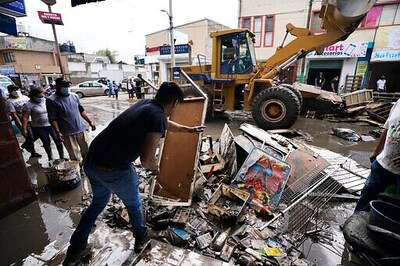
views
It is unlikely that a cancer-causing chemical inside one’s car can be dusted or wiped away. It has emerged through a recent study which was published in the ‘Environmental Research Journal’. It followed on the heels of a related study showing the longer your commute, the more you’re exposed to this chemical.
TDCIPP, or chlorinated tris, is a chemical flame retardant widely used in automobile seat foam.
In addition to TDCIPP being on California’s Prop. 65 list because it is carcinogenic, UCR environmental toxicologist David Volz has found that TDCIPP prevents zebrafish embryos from developing normally. Other studies have associated it with infertility in certain women.
Some research suggested that dust removal could lead to lower exposure to chemicals. Volz and his colleagues hoped that was true for car interiors. The researchers divided nearly 50 study participants, all of them heavy commuters, into four groups they tracked for two weeks. One group did not wipe the dust in their cars at all, another wiped the dust both weeks, and two other groups wiped for only one of the two weeks.
All participants were given silicone wristbands to wear continuously during the two-week testing period. The molecular structure of silicone makes it ideal for capturing airborne contaminants such as TDCIPP. “Going into this, our hypothesis was that the no-wipe group would have the highest concentration, the two-week wipe group would be lower, and the partial wipe groups would be somewhere in between,” Volz said.
“But what we found was that there was basically no difference between any of the groups,” he added. Previously, the researchers assumed that commuters’ primary exposure to TDCIPP is through contaminated dust. One possible explanation for this study’s result, Volz said, was the possibility that TDCIPP is not coming from dust that can be cleaned. Instead, it could have moved directly from car seats into wristbands in gas or aerosol form.
Read all the Latest Lifestyle News here


















Comments
0 comment